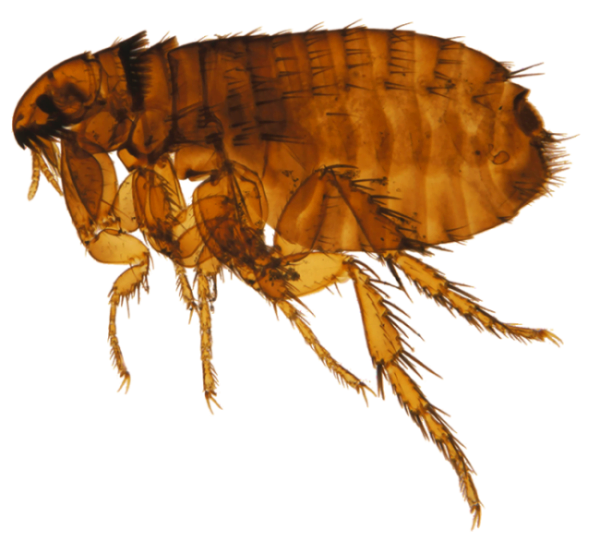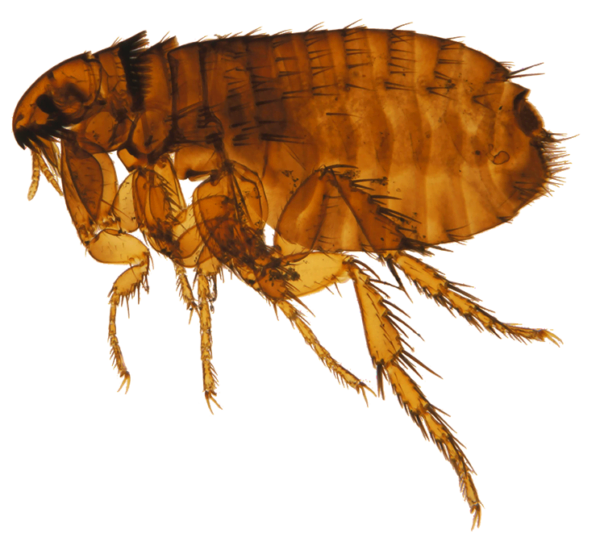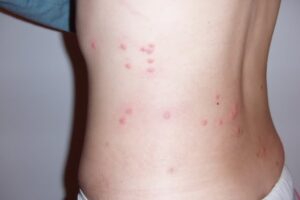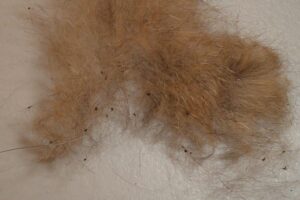Fleas are more common than you may realise and are particularily prevalent in homes with dogs & cats present. Even without your own, a neighbours or previous tenants pet could have caused and infestation in your home.
Fleas are 2-4mm long with a narrow body from side to side with long strong legs that they use to jump great distances for their size.
Fleas are a common parasite that feed on the blood of humans and animals alike by piercing the skin and using an anti-coagulant to stop the blood clotting while feeding. A flea bite can be dangerous for a few reasons not just because of the irritation caused but they can also pass on other parasites including tapeworms and sometimes as a flea sucks the blood the blood will pass directed into their rectum in order to lay eggs. A Flea egg can then lay dormant for over 12 months until the right warmer weather arrives before hatching. Image credit: Katja ZSM
Life Cycle
Fleas have four stages of development:
- Egg – 0.5mm round and smooth in size. Usually laid in bedding or the nest of their host however they can fall off host and hatch on the ground or carpets. Females will lay a few a day until she no longer produces eggs however she can lay over 500 eggs in her life. Eggs take from three days onwards to hatch depending on environment conditions and can be killed if the temperature gets too cold.
- Larvae – Carry out three moults which can take a week or longer at times.
- Pupa – Once matured the larvae will cocoon in sand or dust etc. for 2-3 weeks in good environments.
- Adult – Once surround conditions and they can sense a food source the adult will appear ready to feed and reproduce.
Location
Fleas like to live in high dust or debris areas. They can be found hiding in carpets, under buildings, lawn clippings or in soft furnishing.
Food
While young the Larvae Flea will eat organic debris or faeces of matured fleas however once matured adult fleas feed on blood only and can live up to 3 months without food.
Management and Control
Fleas are not considered a pest until they reach the adult stage. There are also a number of different ways to treat fleas. Like the bed bug it is important to work with your Pest Alert Technician to get the most out of your flea treatment. Before the Technician arrives you are asked to prepare the area by watering the soil, vacuuming or washing linen and fabrics in HOT water and pets will need to be properly treated. The Technician will then use a Insect Growth Regulator to treat your property. This is a special chemical produced to prevent the flea from developing past the larva stage by inhibiting the moulting process. With properties that have a high population of adult fleas these areas will be treated with similar insecticide which will treat all infestations present. To stop reinfestation it is important to vacuum regularly and wash your pests with flea control products. If the fleas came from an outside source there is no guarantee they will not return without treating the direct source.
Stop or prevent a flea infestation by calling our experts on
![]() 6884 7557
6884 7557









